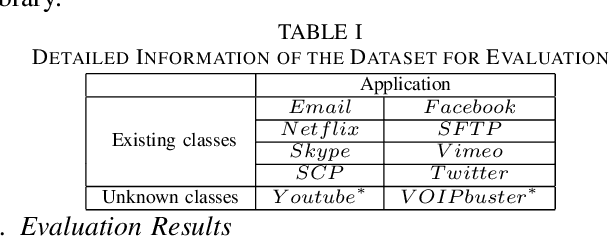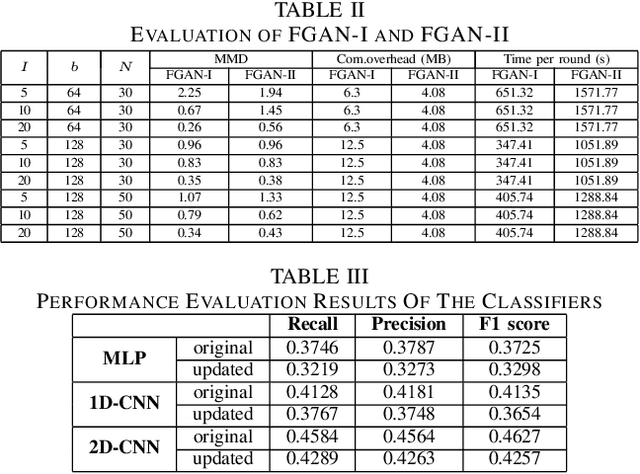Kwang-cheng Chen
Federated Traffic Synthesizing and Classification Using Generative Adversarial Networks
Apr 21, 2021



Abstract:With the fast growing demand on new services and applications as well as the increasing awareness of data protection, traditional centralized traffic classification approaches are facing unprecedented challenges. This paper introduces a novel framework, Federated Generative Adversarial Networks and Automatic Classification (FGAN-AC), which integrates decentralized data synthesizing with traffic classification. FGAN-AC is able to synthesize and classify multiple types of service data traffic from decentralized local datasets without requiring a large volume of manually labeled dataset or causing any data leakage. Two types of data synthesizing approaches have been proposed and compared: computation-efficient FGAN (FGAN-\uppercase\expandafter{\romannumeral1}) and communication-efficient FGAN (FGAN-\uppercase\expandafter{\romannumeral2}). The former only implements a single CNN model for processing each local dataset and the later only requires coordination of intermediate model training parameters. An automatic data classification and model updating framework has been proposed to automatically identify unknown traffic from the synthesized data samples and create new pseudo-labels for model training. Numerical results show that our proposed framework has the ability to synthesize highly mixed service data traffic and can significantly improve the traffic classification performance compared to existing solutions.
Minimizing Age-of-Information for Fog Computing-supported Vehicular Networks with Deep Q-learning
Apr 04, 2020



Abstract:Connected vehicular network is one of the key enablers for next generation cloud/fog-supported autonomous driving vehicles. Most connected vehicular applications require frequent status updates and Age of Information (AoI) is a more relevant metric to evaluate the performance of wireless links between vehicles and cloud/fog servers. This paper introduces a novel proactive and data-driven approach to optimize the driving route with a main objective of guaranteeing the confidence of AoI. In particular, we report a study on three month measurements of a multi-vehicle campus shuttle system connected to cloud/fog servers via a commercial LTE network. We establish empirical models for AoI in connected vehicles and investigate the impact of major factors on the performance of AoI. We also propose a Deep Q-Learning Netwrok (DQN)-based algorithm to decide the optimal driving route for each connected vehicle with maximized confidence level. Numerical results show that the proposed approach can lead to a significant improvement on the AoI confidence for various types of services supported.
 Add to Chrome
Add to Chrome Add to Firefox
Add to Firefox Add to Edge
Add to Edge